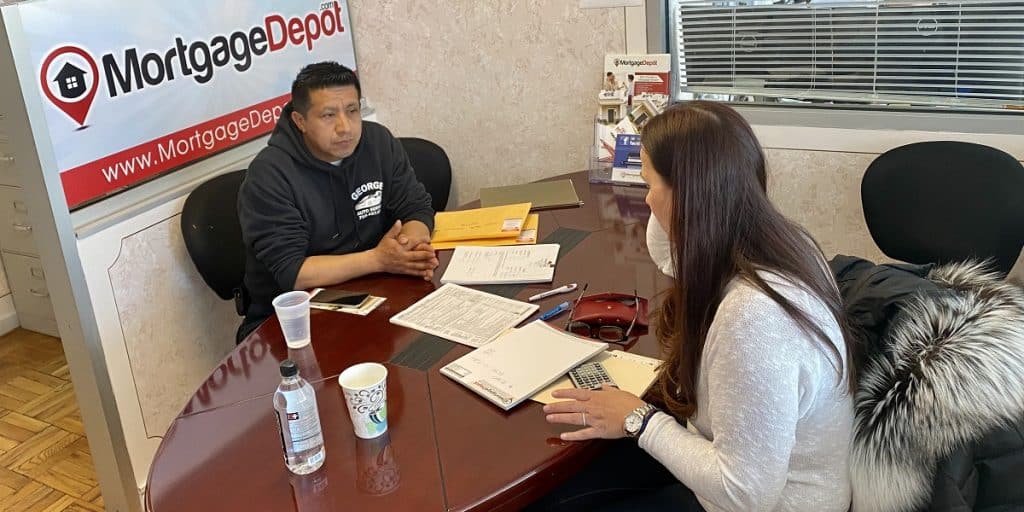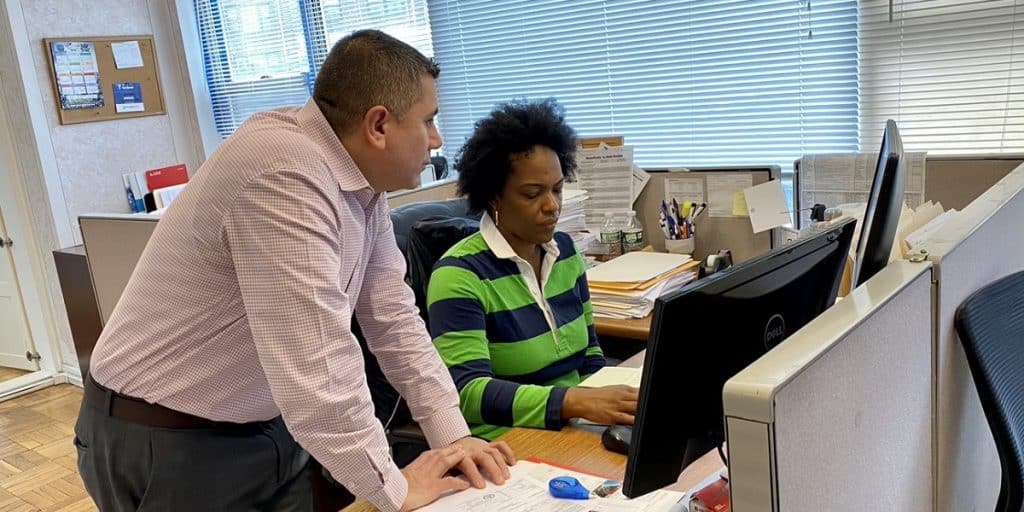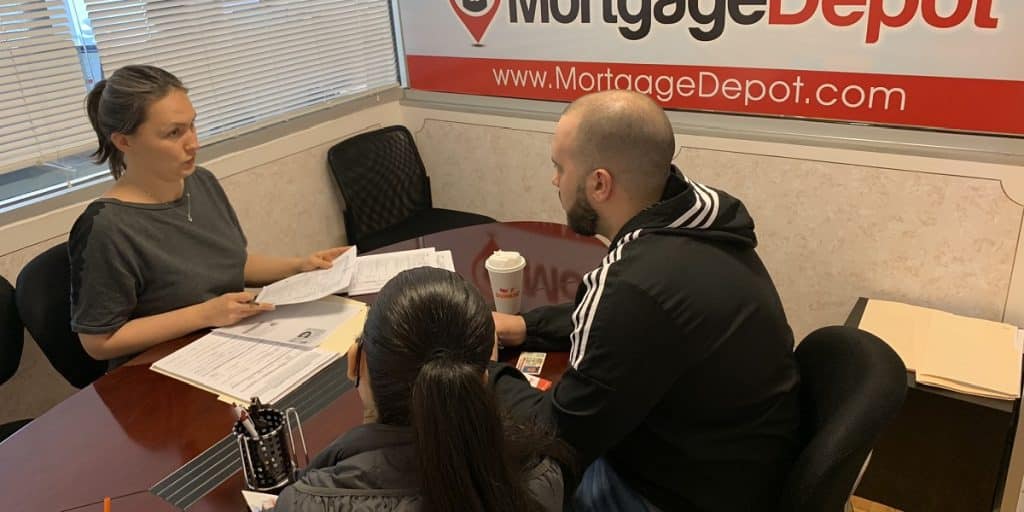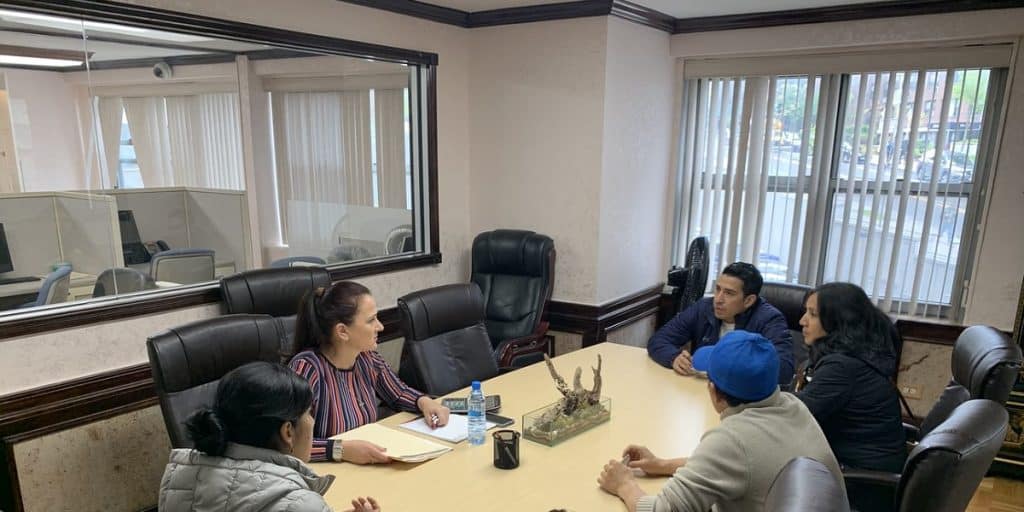
For the second time in as many weeks, mortgage rates have hit new lows. But buyers may have a really hard time actually getting those rates, because lenders are setting stricter credit requirements. Although buyer demand remains strong, lenders are tightening their lending requirements. According to a report released Thursday by the Mortgage Bankers Association, mortgage credit availability dropped 3% to its lowest level since 2014.
“The summer is heating up as record-low mortgage rates continue to spur homebuyer demand,” said Sam Khater, Freddie Mac’s chief economist. “However, it remains to be seen whether the demand will continue if COVID19 cases rise to the point that it hinders economic growth.”
Freddie Mac’s weekly report on rates shows that the average interest rate for a 30-year fixed-rate mortgage were 3.03% with 0.8 discount points paid, for the week ending July 9. That’s a drop of 0.04 percentage points from last week’s 3.07%, which was also a record. Mortgage rates have remained below 3.3% for ten consecutive weeks. A year-ago, the 30-year rate was 3.75%.
The average rate for a 15-year fixed-rate mortgage has also decreased, down 0.05 percentage points to 2.51% with 0.8 points paid. The 15-year interest rate for the same week last year was 3.22%. Meanwhile, the average rate on a 5-year adjustable-rate mortgage was 3.02% with 0.3 discount points paid, up 0.02 percentage points from last week.
The mortgage credit supply dropped again in June, as investors further reduced their willingness to purchase jumbo loans and to lend to those with lower credit score,” said Joel Kan, the MBA’s head of economic and industry forecasting. “Lenders are navigating a gradual economic and housing market recovery that is still facing headwinds from the ongoing COVID-19 pandemic.”
Freddie Mac’s weekly report on rates shows the average interest rate for a 30-year fixed-rate mortgage were 3.03% with 0.8 discount points paid, for the week ending July 9. That’s a drop of 0.04 percentage points from last week’s 3.07%, which was also a record. Mortgage rates have remained below 3.3% for ten consecutive weeks. A year-ago, the 30-year rate was 3.75%.
“The summer is heating up as record-low mortgage rates continue to spur homebuyer demand,” said Sam Khater, Freddie Mac’s chief economist. “However, it remains to be seen whether the demand will continue if COVID cases rise to the point that it hinders economic growth.”
The average rate for a 15-year fixed-rate mortgage also decreased, down 0.05 percentage points to 2.51% with 0.8 points paid. The 15-year interest rate for the same week last year was 3.22%. Meanwhile, the average rate on a 5-year adjustable-rate mortgage was 3.02% with 0.3 discount points paid, up 0.02 percentage points from last week.
While buyer demand remains strong, lenders are tightening their requirements. According to a report released Thursday by the Mortgage Bankers Association, mortgage credit availability dropped 3% to its lowest level since 2014.
“Mortgage credit supply dropped again in June, as investors further reduced their willingness to purchase jumbo loans and those with lower credit score,” said Joel Kan, the MBA’s head of economic and industry forecasting. “Lenders are navigating a gradual economic and housing market recovery that is still facing headwinds from the ongoing COVID-19 pandemic.”
Home Buying Activity Swings Back Up
Home mortgage loan applications moved back into positive territory for the week ending July 3, according to data from the Mortgage Bankers Association (MBA). Home purchase applications increased 5% from the previous week, ending two consecutive weeks of decline. Overall, purchase applications were 33% higher than during the same week a year ago. (These loan application numbers are adjusted, taking the July 4th holiday into consideration.)
“Purchase applications continued their recovery, increasing 5% to the highest level in almost a month,” according to Kan. He went on to note that the average purchase loan size increased to $365,700, largely due to limited housing supply and higher home prices.
Refinance Applications Also Increase
Refinance applications ticked up 0.4% week-over-week. Refinancing applications made up roughly 60% of overall mortgage applications and were 111% higher than what they were for the same week last year.
Factors Affecting Your Personal Mortgage Rate
Not all prospective homeowners or buyers can expect to get the very best mortgage and refinance rates. Credit scores, loan term, interest rate types (fixed or adjustable), down payment percentage, home location and the loan’s size will affect mortgage rates offered to each, individual home shopper.
Rates also can vary between mortgage lenders. It’s estimated that about half of all buyers only look at one lender, primarily because they tend to trust referrals from their realtors. Yet this means that they may miss out on a lower rate elsewhere. Last year, Freddie Mac reported that buyers who got offers from five different lenders averaged 0.17 percentage points lower on their interest rate than those who didn’t get multiple quotes. If you want to find the best rate and term for your home mortgage loan, it makes sense to shop around first.
Interest Rates and the Cost of Your Monthly Payment
More than other factors, your annual percentage rate on your real estate purchase will affect your monthly payments—whether you’re refinancing or buying a new home.
On a $200,000 home loan with a fixed rate for 30 years:
- A 4% interest rate = $955 in monthly payments (not including taxes, insurance, or HOA fees).
- At 6% interest rate = $1,199 in monthly payments (not including taxes, insurance, or HOA fees).
- At 8% interest rate = $1,468 in monthly payments (not including taxes, insurance, or HOA fees).
Refinancing your mortgage to a lower interest rate can save hundreds of dollars a month if you’ve kept the same loan terms. Shortening the loan term could negate your monthly savings, but save you thousands over the life of the loan. You can experiment with a mortgage calculator to find out how much a lower rate could save you.
Other factors besides interest that can determine how much you’ll pay in mortgage payments:
- Private Mortgage Insurance: PMI adds up to 1% of your home loan’s value to your payment each year. On a $200,000 mortgage loan, PMI at 1% would add $167 a month to your payment. Conventional loans do not require private mortgage insurance when the buyer makes a down payment of at least 20% or refinances less than 80% of the home’s value. Although FHA loans do not require PMI, they do require what is called a Mortgage Insurance Premium, which is paid throughout the life of the loan if you make a down payment of less than 10%. VA loans do not require PMI, MIP, or a down payment.
- Closing Costs: Some buyers finance their new home’s closing costs into the loan, which adds to debt and increases monthly payments.
- Loan Term: Choosing a 15-year mortgage instead of a 30-year mortgage will increase monthly mortgage payments but reduce the amount of interest paid throughout the life of the loan.
- Fixed vs. ARM: An adjustable rate mortgage’s monthly payment could change from year to year after the loan’s introductory period expires. A fixed rate loan’s payments remain the same throughout the life of the loan.
- Taxes, HOA Fees, Insurance: A monthly mortgage payment could also include homeowner’s insurance premiums, city or county property taxes, and Homeowners Association fees. Check with your real estate agent to find out how much these fees will add to your payments.f
How Will Today’s Mortgage Rates Save You Money on a Refinance?
You should consider refinancing your home loan only if your current mortgage rate exceeds today’s mortgage rates by more than one percentage point. Refinancing fees and closing costs will cut into your savings. You also have to consider whether or not your credit score would qualify you for today’s best, low refinance rates.
Many lenders can give you free rate quotes to help you decide whether the money that you’d save in interest charges justifies the cost of a new loan. Try to get a pre-approval quote with a soft credit check, which won’t reduce your credit score.
You could also enhance interest savings by going with a shorter loan term such as a 15-year mortgage. Your payments may be higher, but you could save thousands in interest charges over time, and you’d pay off your house sooner.
Contact one of our loan consultants to learn more.
Have questions or need help?
Call us now at 800-220-LOAN
Request a call back or email us your questions!







